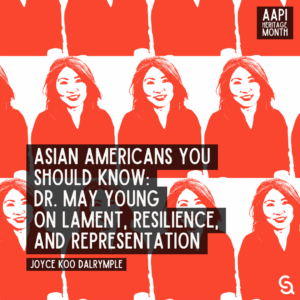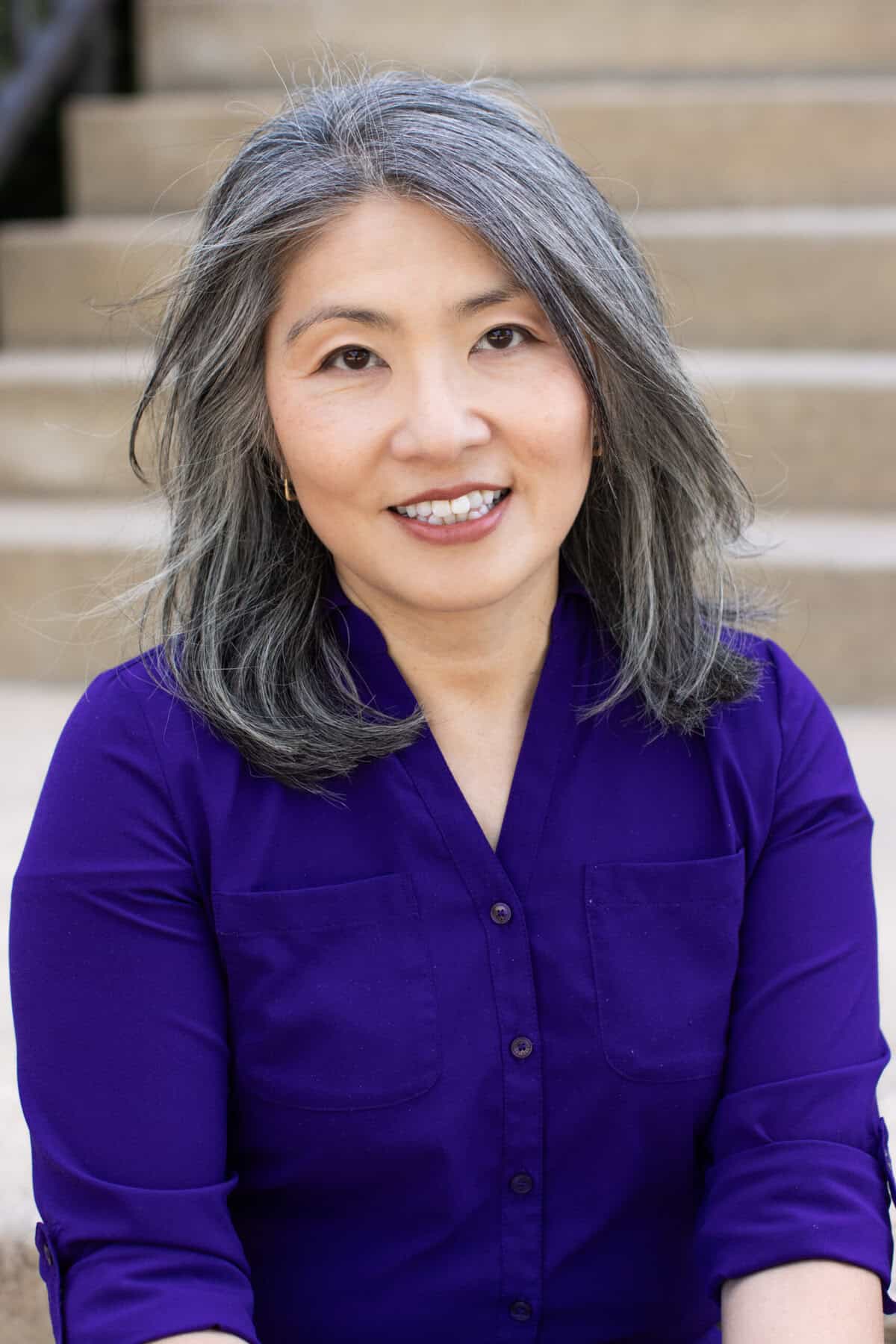 Editor’s note: May is AAPI month, formally known as Asian American, Native Hawaiian, and Pacific Islander Heritage Month. Throughout this month, in addition to several articles we have lined up, we will be featuring Q&As with some of today’s leading thinkers and activists. We call this series of interviews “Asian Americans You Should Know.” This series was put together by pastor and author Joyce Koo Dalrymple. Today, we get to know May Young. Dr. Young is Associate Professor of Biblical Studies at Taylor University, where she chairs the Department of Biblical Studies and related programs. Her research centers on biblical lament and poetry. See her fuller bio below.
Editor’s note: May is AAPI month, formally known as Asian American, Native Hawaiian, and Pacific Islander Heritage Month. Throughout this month, in addition to several articles we have lined up, we will be featuring Q&As with some of today’s leading thinkers and activists. We call this series of interviews “Asian Americans You Should Know.” This series was put together by pastor and author Joyce Koo Dalrymple. Today, we get to know May Young. Dr. Young is Associate Professor of Biblical Studies at Taylor University, where she chairs the Department of Biblical Studies and related programs. Her research centers on biblical lament and poetry. See her fuller bio below.
Dalrymple: Was there anything in your experience as an Asian American that drew you to your area of research on lament and poetry?
Dr. Young: Growing up in Asian American churches, I didn’t hear much about lament. Although we spoke about trials and dealing with hardships, I was not prepared to deal with situations that required me to be raw and honest in my prayers. Asian Americans tend to keep our pain and difficulties to ourselves, which can be helpful at times, but it can also be quite isolating from others and even from God. While I don’t think this is particular only to Asian Americans, I didn’t see lament modeled or discussed in my churches. This drew me into my area of research, because I wanted our churches to learn more about this very biblical concept.
Dalrymple: In seminary, I didn’t read any books by Asian theologians. Why is it important to have Asian or Asian American theologians?
Dr. Young: I think representation is very important. Learning from Asian or Asian American theologians can encourage us to be a part of the conversation. We don’t have to fall into the mindset of only learning and not contributing. As Asians or Asian Americans, our experience can highlight important issues in theology that may not have been addressed in other contexts.
Additionally, I have heard from several students over the years that they never envisioned the possibility of being a professor of Biblical Studies because they never saw an example. However, seeing someone like me gave them encouragement to pursue their own calling. They recognized that this door of opportunity was not closed to them and that their voice could be important for others as well.

Dalrymple: What are you working on now? What can people be looking forward to from you?
Dr. Young: Currently, I am working on a commentary on the book of Lamentations. It is part of the Pillar Commentary Set for the Old Testament. I am also interested in writing on the topic of resilience in our faith, particularly in the life of the prophet Habakkuk. More specifically, the resilience that is portrayed in the book of Habakkuk requires deep wrestling that leads to a renewed perspective of the Lord. A perspective that exhibits surrender as well as hope, even when circumstances remain insecure.
Dalrymple: What should non-Asian people know about the experience of Asian American theologians?
Dr. Young: I think non-Asians should recognize that the Asian American theologian experience is quite varied. The range of Asians is vast; there are East Asians from countries like Korean and Japan; South Asians from countries like India and Pakistan; and Southeast Asians from countries like Laos, Cambodia, etc. This doesn’t even include the experiences of Asian Americans. It is easy to categorize all Asian experiences in the same group, but this would be misrepresenting the Asian experience and only capturing one or several aspects.
Dalrymple: There are a number of Asian Americans leading evangelical institutions—NAE, InterVarsity, Bread for the World, Lausanne. Are Asian Americans invited into a special role in this moment of the church when it is so fractured? Or, what do you think Asian Americans are contributing or are especially gifted to contribute to the wider church?
Dr. Young: Yes, I am very grateful that Asian Americans are being invited into conversations and contributing significantly to evangelical institutions. While I believe each leader has his/her special calling and gifts for the wider Church, I think that Asian Americans are good mediators. In my own experience, Asians are especially gifted in trying to build bridges rather than contributing to polarization. Asians value a collective mindset that strives for social unity. I think this is helpful for our current fractured state in the Church.
May Young (PhD, Trinity Evangelical Divinity School) is Associate Professor of Biblical Studies at Taylor University, where she chairs the Department of Biblical Studies and related programs. Her research centers on biblical lament and poetry. She is the author of Walking with God Through the Valley (IVP) and has contributed to volumes such as Reading the Psalms Theologically and A Praying People. She is currently writing a commentary on Lamentations for the Pillar series.


